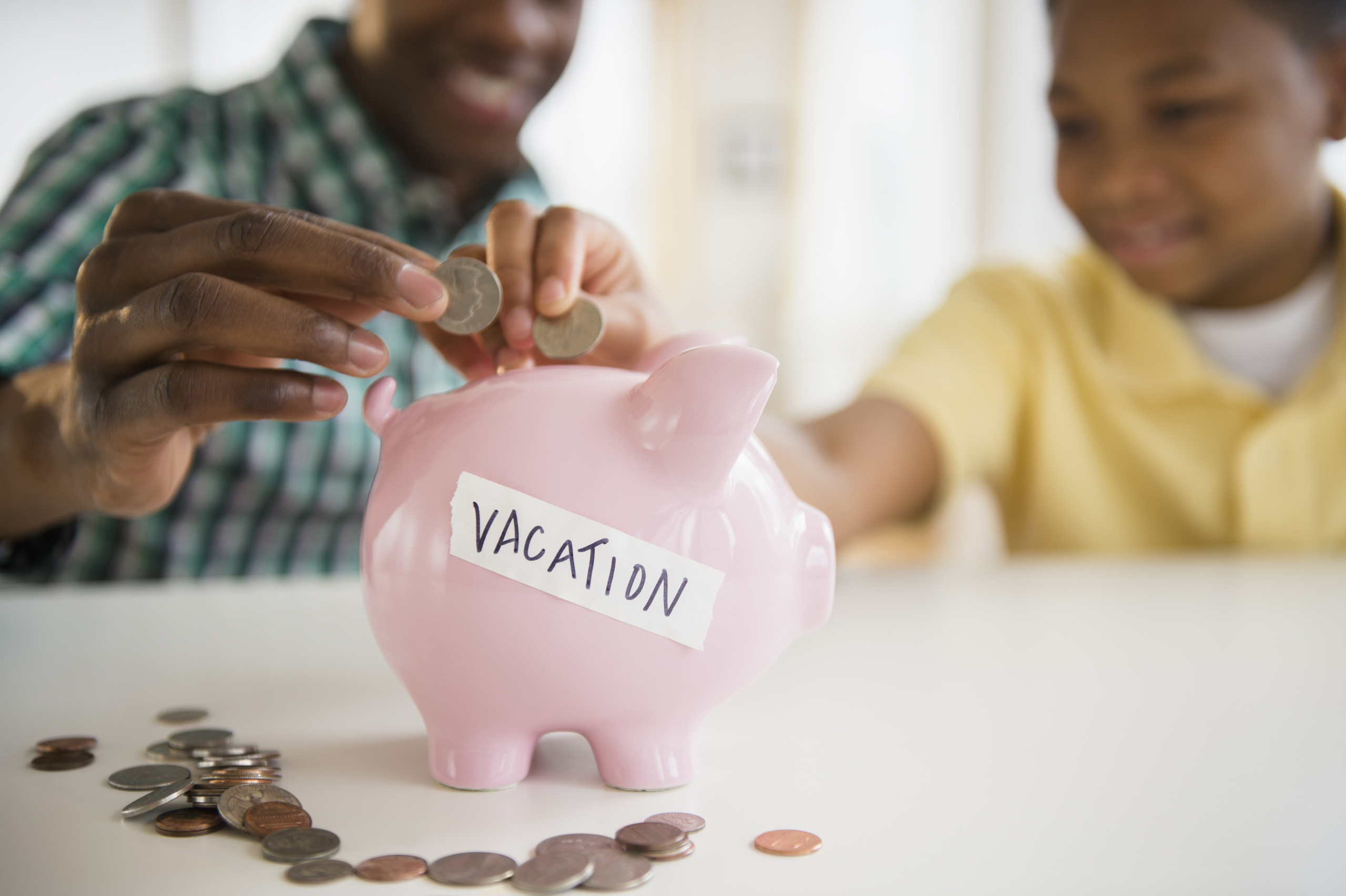
Are you dreaming of an exciting trip but worried about the costs? Don’t be! Family vacations can be more affordable than you think. Traveling on a budget may take some planning, but it doesn’t mean you have to compromise on the quality of your experience. You can plan a memorable trip and explore new destinations, all while sticking to your financial goals.
In this article, we’re sharing five practical tips to help you plan an affordable family getaway and make the most of your next adventure.
Planning your travel budget is the first step to ensuring a successful and affordable trip. It’s important to determine how much you can comfortably spend before you travel by considering your income, savings, and financial obligations and allocating a specific percentage of those funds for any travel expenses. Tailoring your budget to your own financial situation ensures that it will be realistic and attainable.
To create an accurate and comprehensive budget, consider all aspects of your trip, including transportation, accommodations, meals, activities, and unexpected expenses. Conduct thorough research about your destination to gain insights into the cost of living, local currency exchange rates (if traveling abroad), and everyday prices for tourist attractions. If you have previously vacationed in a similar area, take the opportunity to analyze your past spending as well to better estimate your upcoming expenses.
By gathering as much information as possible beforehand, you’ll enter your vacation planning with a clear budget in mind. You will be able to make informed decisions and avoid the risk of overspending.
Accommodation and travel expenses often constitute a significant portion of the average travel budget. In many cases, they’re unavoidable, but with careful planning and smart choices, you can whittle these expenses down, making your trip more affordable.
When looking for lodging, search for more affordable options when possible. Short-term room rentals, homestays, and hostels can be viable and affordable options but aren’t for everyone, especially if you’re traveling with your family. If your situation requires a more traditional alternative, renting an apartment or house through an online platform is another way to go. Vacation rentals offer unique, affordable lodging options for family travel on a budget, with access to opportunities you may not have if you stay in a hotel. For this reason, some prefer renting through services like Airbnb or VRBO since these lodgings can often provide more space and amenities at a lower cost than traditional hotels.
When it comes to travel, being proactive in finding deals and being flexible with your travel dates can significantly reduce associated expenses. Keep an eye out for flight deals and consider flying with a budget airline, if possible. Opting for public transportation instead of more expensive options, like taxis, can also save you a great deal of money, and rail or bus passes can be a cost-effective way to travel if you’re touring through a particular area.
Additionally, when traveling short distances, take advantage of opportunities to walk or rent a bicycle where possible. This will not only save you money, but it will allow you to immerse yourself in the local surroundings and better appreciate your travel destination.
Travel rewards are benefits you earn from hotels, airlines, and credit cards that can help you reduce your travel costs. For example, some travel rewards include hotel discounts or cashback on travel purchases, making some of the more essential costs of your trip that much more affordable.
For budget-conscious travelers, travel can be worth it. One of the most straightforward ways to earn these rewards is through a travel credit card. These cards offer special rewards and features for travel, such as bonus points, free bag checks, airport lounge access, and more. Many of these travel cards accrue rewards when used on travel-related expenses, meaning the more you travel, the more you have the potential to save. Whether you’re visiting a theme park or an exotic resort, these cards may help save you money.
Not all travel credit cards are the same, however, so before choosing one, be sure to compare the different options to see which one matches your travel goals and spending patterns. Pay attention to any annual fees, interest rates, and reward terms of each card, as these can impact the overall savings you achieve. By doing your homework and using your card responsibly, you may be able to offset some of the expenses of your trip by using points or taking advantage of the perks of your chosen program.

Eating out for every meal can strain your budget, especially in touristy areas. Restaurants in or near neighborhoods with many hotels and tourist attractions tend to be more expensive than they would be otherwise, so to save money, remember this simple phrase: follow the locals. In pure value terms, the best meals in unfamiliar cities are typically the ones found off the main commercial streets, in hole-in-the-wall restaurants, or street carts. By taking time to explore and talk to the locals, you can find delicious food for an affordable price.
Additionally, if your accommodation has kitchen access, try shopping at the local market. Buying fresh food and cooking it at home is another excellent way to sample delicious local cuisine and save money in the process.
You don’t have to spend a fortune to enjoy some of the world’s most expensive destinations. There are plenty of free or cheap things to do and see on vacation if you know where to look. For example, you can visit parks, museums, or festivals with low or no admission fees and experience the local culture and nature without spending a dime. Make sure to take advantage of the free breakfast at your hotel, too!
These activities can be more fun and authentic than the typical tourist traps, and, in some cases, less crowded too. By researching before you travel, you can find a treasure trove of hidden gems that will enrich your next trip without emptying your wallet.
Vacations can be stressful, but they don’t have to be. Setting a realistic budget, prioritizing affordable options, and maximizing travel rewards can create unforgettable memories while keeping your finances in check.
Remember, budgeting for travel requires careful planning and research, but with the right tips, you can equip yourself and embark on an adventure without breaking the bank!
The information and materials provided on this website are intended for informational purposes only. They should not be treated as an offer or solicitation of credit or any other product or service of Regional Finance or any other company. This website may contain links to websites controlled or offered by third parties. The inclusion of any third-party link does not imply any endorsement by Regional Finance of the linked third party, its website, or its product or services.
https://www.bankrate.com/finance/credit-cards/how-to-choose-the-best-travel-card/
https://budgetbakers.com/create-realistic-travel-budget/
https://www.moneycrashers.com/eat-cheap-traveling-vacation/
https://www.nerdwallet.com/article/travel/nerdwallets-beginners-guide-to-credit-cards-points-miles
https://time.com/5466091/travel-for-cheap-free-budget/
https://www.tripadvisor.com/Travel-g191-c214768/United-States:Free.Activities.While.Travelling.html
You can prequalify for your personal loan online in just minutes by clicking prequalify now. Or, if you prefer, call or stop by your local branch to get the process started. Our loan specialists can answer any questions you may have such as what a personal loan is, understanding personal loan interest rates, and how to qualify for a personal loan. We’ll help you fill out an application for the type of loan that fits your needs.